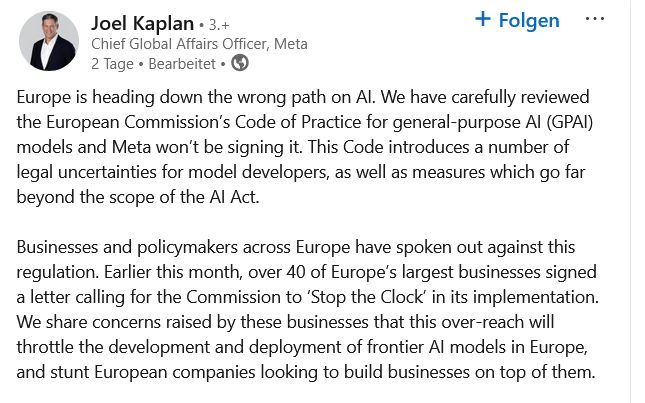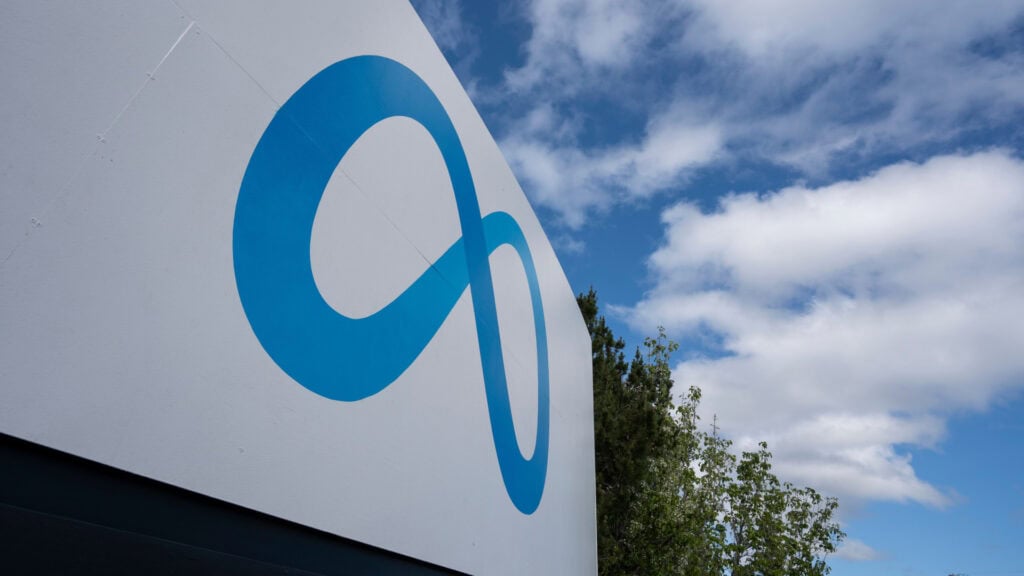The social media company criticizes the voluntary rules as misguided and fears legal uncertainties for developers of AI models.
Meta will not sign the European Union’s new Code of Conduct on Artificial Intelligence. This was announced by Joel Kaplan, Chief Global Affairs Officer of the Group, on Friday. He described the EU initiative as “the wrong path” and criticized an overregulation of the sector.
Voluntary rules with far-reaching consequences
The guidelines published last week are aimed at providers of general purpose AI (GPAI) systems. According to EU officials quoted by the Wall Street Journal, the code includes guidelines on security, transparency and copyright. These are intended to support companies in implementing the EU’s comprehensive legislation on artificial intelligence.

Although the rules are voluntary and Meta is not obliged to sign them, Kaplan warns of legal uncertainties. “Europe is heading down the wrong path on AI,” he wrote on LinkedIn. “We have carefully reviewed the European Commission’s Code of Conduct for GPAI models, and Meta won’t be signing it.”
Industry demands postponement of implementation
The code of conduct is under considerable lobbying pressure from industry. More than 40 CEOs of European companies, including ASML, Philips and Siemens, have called for a two-year freeze on the implementation of the AI law. The background to this is the August deadline by which key obligations are due to come into force.
The companies argue that a delay would allow both “appropriate implementation by companies and further simplification of the new rules”. In addition to the additional compliance costs, the practical implementation of the regulations is already causing headaches for many companies.
Concerns about inhibiting innovation in Europe
Meta shares the fears of other tech companies that the code of conduct could slow down innovation. “We share concerns raised by these businesses that this over-reach will throttle the development and deployment of frontier AI models in Europe and stunt European companies looking to build businesses on top of them,” says Kaplan.
Tech giants see the situation in Europe, where companies typically have smaller compliance teams than their US counterparts, as problematic. This could lead to a competitive disadvantage for European AI developers.
Kaplan also criticizes that the Code “introduces a number of legal uncertainties for model developers as well as measures that go far beyond the scope of the AI Act”.

